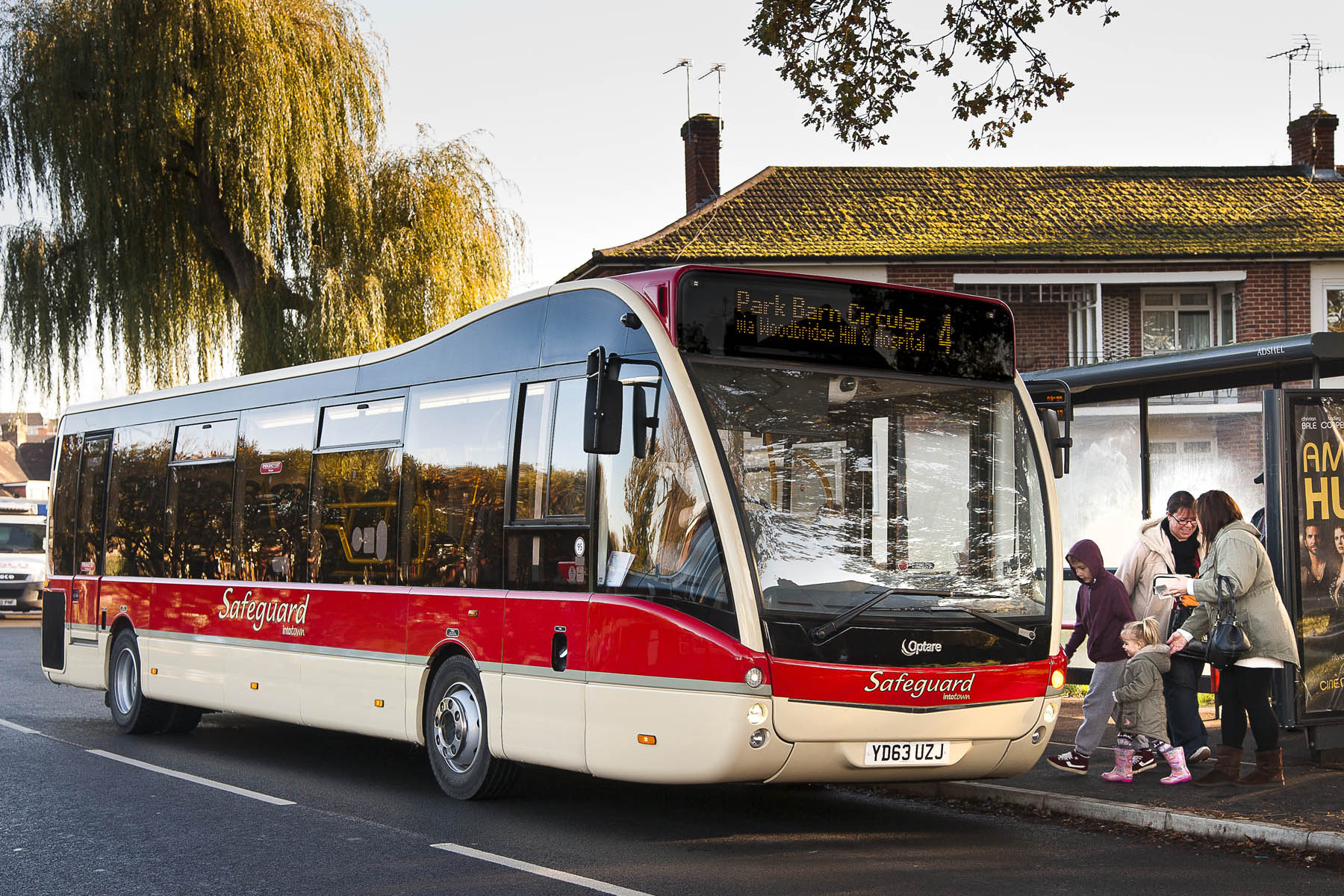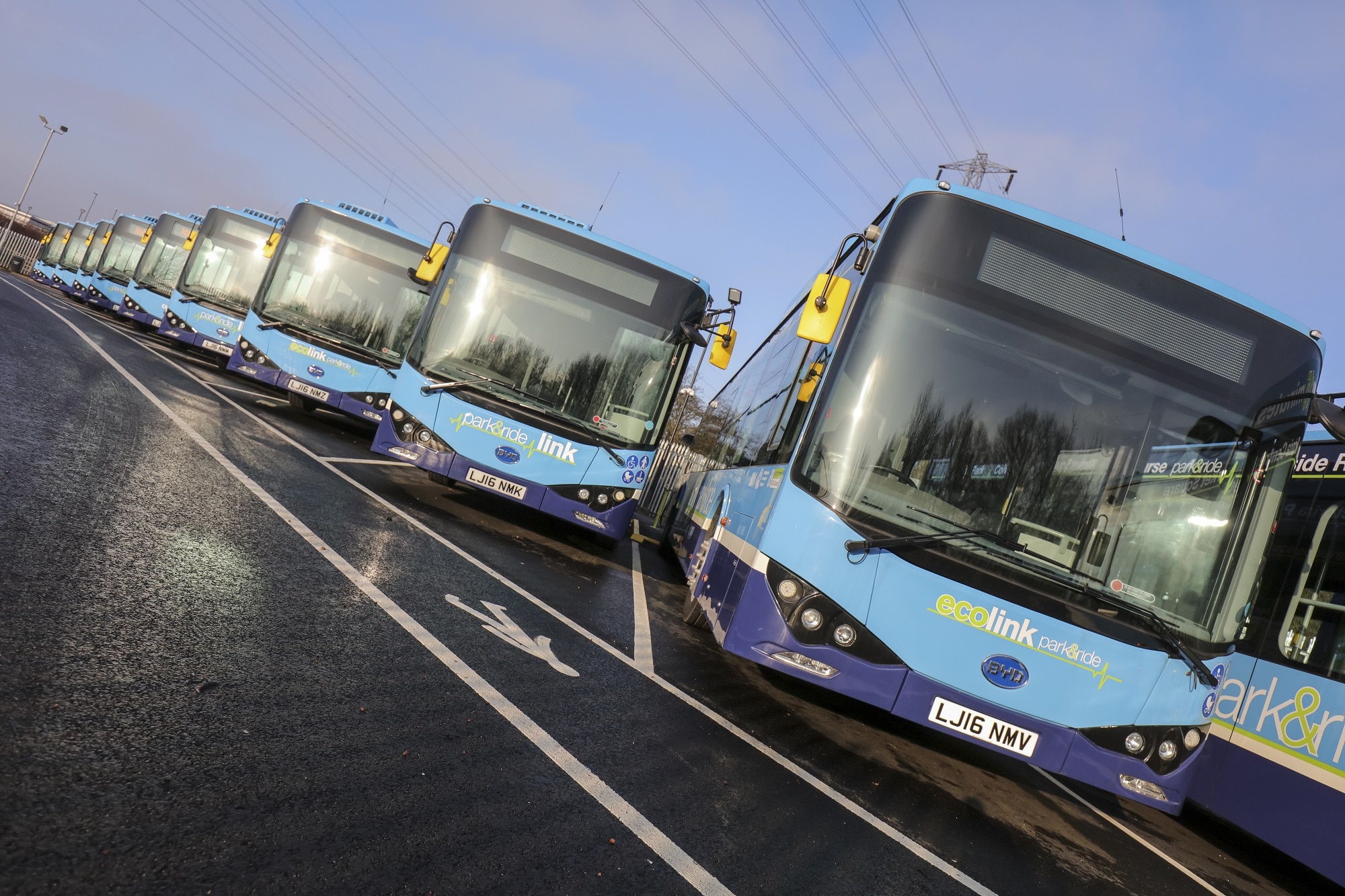The Covid-19 Bus Services Support Grant will help bus operators in England maintain essential services. How have they received the news, and do they believe it will be enough to survive the pandemic?
If the Covid-19 Bus Services Support Grant (CBSSG) tells us anything, it is that survival will likely be the definitive goal of 2020.
To that end the arrival of the £167m tranche of funding for bus operators in England has been a hair of light in a dark chamber.
As explained by routeone, the additional funding stream is being provided on top of £200m of BSOG currently paid to English operators at ‘business as usual’ levels. They are required to maintain key routes at a service level that meets demand yet allows enough space between passengers to qualify for the additional funding stream.
The announcement has been well received by the industry. It will undoubtedly keep many services running despite a loss in patronage.
But solutions for the longer term have yet to be announced. What of the mitigation of a tarnished image for public transport, further harm to buses through the collapse of the coach industry – activity in which being what some small bus operators are dependent – and a commitment to further financial support when the industry begins its climb back to normality? These are questions on the minds of operators.

Covid-19 Bus Services Support Grant: A life ring
Chris Almond, Network Manager at Stoke-on-Trent-based D&G Bus, says he took an axe to the entire business at an early stage after a 90% drop in passenger numbers on some services. He has welcomed the announcement of support, yet is aware of its potential limitations.
“All in all, it could have been much worse,” he says. “Passenger numbers are very low, and the fact that the government has come up with this money is fantastic.”
Local authorities (LAs) in England have been told to keep concessionary fares at historical rates, and that any revenue for operating tendered services have to be maintained (paid also through LAs). This has worked in D&G Bus’ favour. But the impact of the £167m to support commercial services cannot yet be fully measured.
“That’s because nobody knows how long this is going to go on for. A lot of the changes we have made to the business in the last three weeks were kneejerk decisions,” Chris says.
D&G Bus has submitted historical patronage and mileage figures to the Department for Transport (DfT). The operator has been largely left to its own devices with how the commercial network is run; some areas of its network are no longer being served, while others have seen reduced frequency.
“We have planned it carefully to ensure nobody has been left high and dry,” Chris adds. “We haven’t received any complaints of that nature. We have had to work out what’s practical for us to serve, while being mindful of the costs.”
While the grant could potentially bring some of those cut services back to life, Stoke-on-Trent City Council is prioritising additional journeys to enhance the reduced commercial network. Some of the money made available is being used to add early morning and evening journeys, normally not commercially viable due to limited demand. Other journeys are being provided on busier routes to accommodate additional capacity for social distancing measures.
“It will need a big publicity push to get the prejudice against public transport out of people’s minds”
Change is constant. Dates for furlough payment eligibility have recently changed and D&G is yet to receive much information from DfT on how other CBSSG information will be collected and for what time period. Knowing how other help will be implemented is also a grey area – the application form for the Coronavirus Job Retention Scheme has only recently gone live.
“I’m struggling to keep up. It’s hard work. There’s a big grey area over how everything is going to work, and even DfT does not have some of the answers yet,” Chris explains.
Having hitherto only the government furlough scheme to support D&G through the reduction of services, the announcement of CBSSG has offered some reassurance that the business will continue in its current capacity, at least in the short term. “It couldn’t have gotten much worse,” Chris says. “There was a lot of uncertainty and I know several operators that have shut the gates. Nobody wanted us to be in that position. So CBSSG was a relief.
“Right now everybody needs to know what everyone else has been doing, and what service level is going to be in place. The LA has helped a lot by advertising it through its website and putting the relevant data on Traveline, meaning the public aren’t left stranded.”
Extra support needed
Support for a skeletal bus service across the nation is expected only to go so far though, and Chris – like many – is mindful and vocal about the need for additional backing. Support for the coach industry is a particularly pertinent topic as some bus operators are also highly active in that sector.
“The general consensus is obviously that we’re a bus company, but we have a lot of dealings with other operators and we especially have dealings with many coach operators.

“It’s safe to say that everybody at a bus company knows somebody at a coach company, and at the start of this year they had a healthy industry. Now we’re worried how this is all going to turn out.”
Equally, Chris is mindful of the need for a push to encourage public transport use again, if and when things begin to return to normal. “It will need a big publicity push to get the prejudice against public transport out of people’s minds,” he says. “Yet the recession might mean more people turn to buses.”
What comes after the short term financial solutions will be what decides the future health of the industry. “Before this happened, the government announced it had £5bn to spend on buses. Will that still be enough?”
Managing Director of Guildford-based Safeguard Coaches, Andrew Halliday, applied to and is grateful for the CBSSG. While recognising it will be complex, he acknowledges its importance in continuing to run a skeleton bus service for key workers.
“But it doesn’t solve all of our problems,” he hastens to add.
Safeguard’s business comes under two headings. Like many, there is a coach operation making up a large part of its work. Passenger numbers have dwindled on bus, and ceased completely in coaches.
An emergency bus timetable has been put in place to meet core requirements. The CBSSG will fund that.
“The LA has been very supportive and engaged with us proactively,” Andrew says. “It has not forced any issues, but has been understanding and helpful. The funding will allow us to continue a lifeline bus service, though it means we won’t be able to increase the level of service as a direct result.”
Andrew says Safeguard, with a 96-year history to its name, will not succumb easily. It is in a position to continue for as long as it takes, though one of the main worries is not the short-term financial shock, but overall damage to the sector and industry, and how long those effects will be felt. “When the world has largely gone back to some sort of order, what will it look like for the bus and coach sector? Will social distancing still be having an impact, and will people be concerned about close proximity with others?”
While Andrew believes buses will rebound more quickly, it is likely to take longer for the coach industry. With any events reliant on social gatherings devastated by coronavirus COVID-19, he believes there will be a currently unknown effect that will continue for months, if not years. This is where funding for the coach industry will become vital, should the government wish to help it maintain contributions in future.
“Other than the furlough support, which we are very grateful for, we’re very much hoping for some extra funding for the coach sector. The Confederation of Passenger Transport (CPT) is doing a valiant job fighting for our case. What the industry needs to do right now is come together to make CPT’s efforts successful.”

Support when it is needed
Andrew says it is important to be mindful that different sectors of the UK economy will emerge from the pandemic on different timescales.
Tourism, and the schools market, will likely take longer than many other sectors to recover. To that end, it is important that funding does not cease immediately should the ‘lockdown’ be lifted.
“Even when the news headlines have long moved to other things, we will likely be needing financial support. I believe the furlough scheme is going to have to continue for as long as it is needed for each individual sector of the economy, and for some that will be longer than others.
“We may make it through the first stage of the lockdown only to find it gets tougher when things start to return to normal. We can’t afford that to be the case.”
Andrew is confident the government will look favourably on CPT’s calls for extra funding and the case for a job retention scheme and coach funding.
Support for buses, at the very least, will need to continue for as long as it takes, as Andrew explains. If the plug is pulled on funding before the industry has time to recover from the long-term effects of coronavirus COVID-19, or the furlough scheme does not extend to allow the gradual return of the workforce, the good work already done through the CBSSG could be dashed to pieces.



























